Insider Tips for Buying Property in Europe
Welcome to Cheap property Europe, your ultimate resource for insider tips on buying property in Europe! Whether you're a seasoned investor or a first-time buyer, navigating the European real estate market can be a complex and daunting task. In this article, we will provide you with valuable insights and expert advice to help you make informed decisions and achieve success in your property purchase.
1. Understanding the European Real Estate Market
Europe covers a vast area and is made up of many Countries and not just the Countries that makeup the European Union.
Europe offers a diverse range of real estate opportunities, each with its own unique characteristics and regulations. Before diving into the buying process, it's crucial to familiarise yourself with the market dynamics of your target country or region. Factors such as property prices, legal requirements, taxation, and local market trends can vary significantly between countries.
1.1 Research and Due Diligence
Thorough research and due diligence are essential when buying property in Europe. Start by identifying the countries or cities that align with your investment goals or lifestyle preferences.
Are you looking for investment returns or are you looking for a second or even third home ? Will you be in a business such as Airbnb, writer retreats ,resorts restaurants? Do you want sea, mountain with, ski or tropical or sun all year round?
There are important questions to ask yourself When you start to look for places to buy.
When it comes to the heavy duty due diligence you need to research the local property markets, economic stability, growth prospects, and legal frameworks governing property ownership for foreign buyers.
Again, this depends on why you are buying property in Europe. For example you won't be interested in growth prospects if you wanted to buy to live as your holiday home. However, all of these aspects are important one way or another. Whether you buy to invest or buy to live you'd need to consider foreign ownership, economic and legal stability. This is because ultimately you want a safe secure property in Europe regardless of purchase reason and intent.
We also recommend engaging with reputable real estate agents, talking to local experts, and attending property exhibitions and conferences to get a good sense of what you’re about to get into.
We particularly like the property exhibitions and conferences because they gather everyone in one spot but do remember that everyone there has a vested interest to sell you something and may not necessarily meet you eye to eye on your intent or even why you want to buy in the first place. Use these wisely to gather information and do your research and evaluate for yourself if the people exhibiting here are reputable real estate agents, consultants, experts or lawyers.
1.2 Financing Options
Understanding the financing options available to you is crucial before embarking on a property purchase. While traditional mortgages are commonly used, you should explore other financing avenues, such as local banks, international lenders, or government schemes that may offer favourable terms for foreign buyers. Be sure to assess the interest rates, loan terms, and associated costs to find the most suitable financing option for your needs.
1.3 Engage Professional Services
Engaging professional services throughout the buying process can provide invaluable assistance and ensure a smooth transaction. Consider working with local real estate agents, lawyers, and accountants who specialise in international property transactions. They can help you navigate legal requirements, negotiate contracts, conduct property inspections, and address any language or cultural barriers.
We also suggest a certified translator for the documents that may not be in your native language and also an interpreter if you’d like to see properties yourself and/or personally be there when talking to the local experts. Of course, if you can find local experts that speak your native language, even better!
2. Choosing the Right Property
Selecting the right property is a crucial step towards a successful investment. Consider the following factors when making your decision:
2.1 Location and Market Trends
The location of the property plays a significant role in its potential for growth and rental income. Look for areas with good infrastructure, amenities, and proximity to transportation links, schools, and business centres. Additionally, study the local market trends to gauge the potential for capital appreciation and rental demand.
Pro tip: when you’re looking at small villages or towns, make sure they have a bank office or that you’re not too far away from one. This is to facilitate you buying the property but also signals a local economy and won’t be at risk of being one of those ‘abandoned’ or ‘ghost towns’.
2.2 Property Type and Features
Determine the type of property that aligns with your investment goals and lifestyle. Options may include apartments, villas, townhouses, or commercial properties. Consider factors such as property size, number of rooms, parking facilities, and additional amenities like swimming pools, gyms, or communal areas. Analyse the features that appeal to potential tenants or buyers, as this can impact the property's rental yield or resale value.
Usually on the expat markets and sites, we have seen a lot of resort style houses and villas being sold as the sellers are also expats. This works for some but it might not work for others. When you start searching for your property in Europe, you’ll quickly realise where the touristy areas are and you may want to consider that when it comes to your lifestyle goals. Do you want a local feel or do you want to jet in for 2 months a year to enjoy the amenities? Or a combination of both?
2.3 Condition and Potential Renovations
Assess the condition of the property and factor in potential renovation costs. While some buyers prefer ready-to-move-in properties, others may seek properties with renovation potential to add value. Evaluate the costs and feasibility of renovations, taking into account local regulations and permits required for alterations.
This is a very underrated consideration when it comes to purchasing your dream property in Europe. In Europe there are a lot of old properties that have good bones that just need a bit of modernisation. Are you one to take on a renovation project or do you want something turnkey?
3. Legal and Administrative Considerations
Navigating legal and administrative procedures is crucial to ensure a smooth and secure property purchase. Seek professional advice to understand the specific requirements and processes involved, including:
3.1 Legal Framework and Ownership Rights
Each European country has its own legal framework regarding property ownership, and regulations can vary. Familiarise yourself with the local laws governing foreign property ownership, rights, and restrictions. Ensure you have a clear understanding of the legal documents involved in the transaction and engage a trusted lawyer to review contracts and ensure compliance.
Some countries will have an expert or professional called a notary which is a bit different from a lawyer. Know the difference and also know their roles and responsibilities and what you’re entitled to as rights if anything goes wrong.
3.2 Taxation and Associated Costs
Be aware of the tax implications and associated costs related to property ownership in your target country. This includes property transfer taxes, capital gains taxes, stamp duties, and ongoing property taxes. Understand the tax obligations for both residents and non-residents and factor them into your budget and financial planning.
As you will be buying as expats or foreign owners, consider the tax implications from your home country as well and whether you might be subject to additional taxes such as income tax and/or wealth taxes.
3.3 Residency and Visa Requirements
If you're considering a long-term stay or relocation to Europe, research the residency and visa requirements. Some countries offer residency permits or investment visas to property buyers, providing added benefits such as access to healthcare and education systems.
This is also a very important consideration to note, buying a property in Europe doesn’t guarantee you the right to live there permanently (unless you participate in the Golden Visa Schemes). Consider the visa requirements and also the impact on your home residency - especially for tax purposes. For example, if you live in any European country for 183 days or more, you’d be considered a tax resident of that country and subject to whatever taxes that residents may have to pay.
4. Risk Mitigation and Insurance
Protecting your investment is crucial, and insurance can play a vital role in mitigating risks. Explore insurance options that cover property damage, liability, and loss of rental income. Consider policies for natural disasters, theft, and tenant defaults to safeguard your investment and provide peace of mind.
5. Closing thoughts...
Hopefully, we’ve covered the basics of these insider tips for buying property in Europe, and you are well-equipped to embark on your real estate journey with confidence and knowledge. Remember, thorough research, professional guidance, and careful consideration of all factors will contribute to your success as a property owner in Europe.

